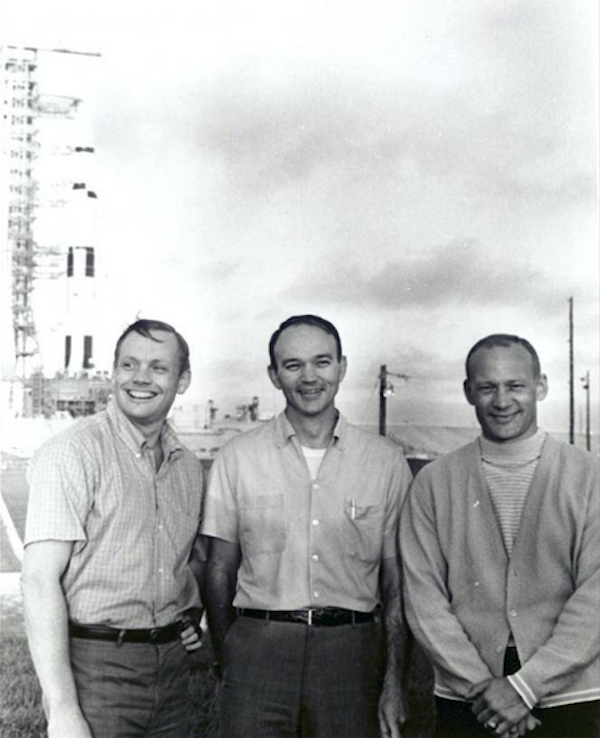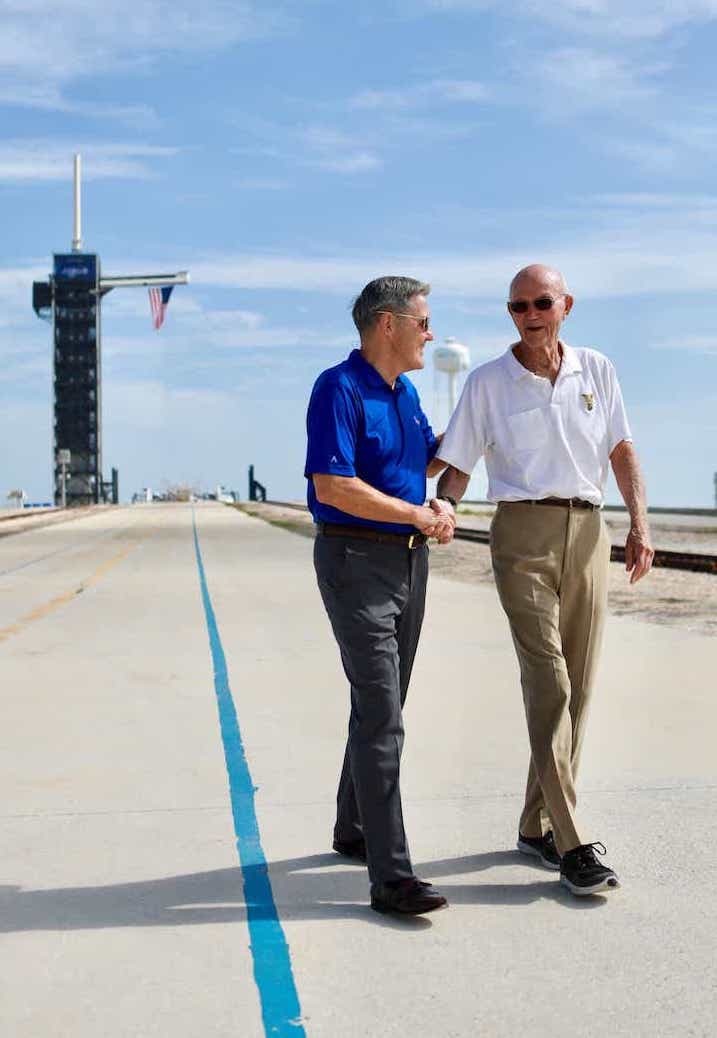17.07.2019
Looking at side-by-side photos, Kennedy Space Center's commanding pad 39A is strikingly different today than it was 50 years ago when Apollo 11 launched on its flight to the moon.
But to the man who sat a few hundred feet from the trench that redirected flames produced by 7.5 million pounds of Saturn V thrust, there was a familiar feeling of adventure – even though his happened half a lifetime ago.
"It's a wonderful feeling to be back at launch pad 39A," Michael Collins, command module pilot for Apollo 11, told Kennedy Space Center Director Bob Cabana during a special anniversary broadcast. "I want to turn and ask Neil a question and maybe tell Buzz Aldrin something, but I'm here by myself."
Aldrin, 89, was unable to attend the 9:15 a.m. event at KSC. Armstrong passed in 2012 at age 82. Collins spoke with Cabana about the Apollo missions and interactions with his three-person crew, as well as a question he often hears: While Armstrong and Aldrin walked on the lunar surface, did he feel lonely staying behind in the orbiting command module?
"The answer is no. I felt fine," Collins, 88, said. "I was very happy to be where I was and see this complicated mission unfold."

"The time I was by myself was perfectly enjoyable. I had hot coffee, I had music if I wanted it. Good old Command Module Columbia had every facility I needed. I was not one iota lonely," he said.
Collins' conversation with Cabana lapsed beyond 9:32 a.m., the official liftoff time of Apollo 11. On that first day in 1969, the 363-foot-tall rocket's first two stages were quickly jettisoned after liftoff. Three-and-a-half hours later, Collins was responsible for separating the command module from the third stage, turning around, and capturing the lunar module for the rest of the flight to the moon.

Today, the historic launch complex is leased and operated by SpaceX, which uses it for Falcon 9 and Falcon Heavy launches. It will also host crewed flights when the company's Crew Dragon capsule is ready to return to flight.
Though Aldrin was unable to attend Tuesday morning's event, he did comment on the historic launch via email to FLORIDA TODAY.
"Launch was almost imperceptibly smooth through the early abort modes, and nothing unexpected happened," he said. "We knew we were accelerating, but the launch was so smooth compared to Gemini launches that we did not know the instant of leaving the ground. We only knew it from the instruments and voice communications which confirmed liftoff. We saw our rate of climb, altitude changing, but were comfortable in our seats."
Collins said Armstrong, meanwhile, did a "superlative job" as commander of the mission. But much of what he remembers is who Armstrong was as a person.
"What I think of is 'Neil the Spokesperson' for three men who were privileged to go around the world after the flight of Apollo 11 and explain to the world what it was all about," he said. "He was a masterful speaker."
Of the entire group of astronauts selected during the Apollo program, Neil was "the perfect choice," he said.
"I couldn't agree with you more," Cabana said. "He's one of the finest gentleman I ever met."
Quelle: Florida Today

